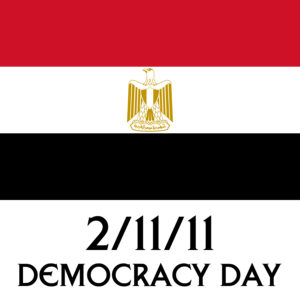Guest Contributor:
The following piece was written by Jubeen Sharbaf. Based in Toronto, Canada, Mr. Sharbaf is an organizational development advisor in the non-profit sector. Mr. Sharbaf is involved in grassroots organization work focusing on leardership issues in civil society. He is a native of Tehran, Iran.
1. Negotiate:
Richard Holbrook once said: “You don’t make agreements with your friends, you make agreements with your enemies”. It might not be a big claim that most powerful nations in the long run are known by their power to negotiate deals. Parties seeking to get power need to sit with their adversaries in one room and negotiate deals and breakthroughs. Power transition necessitates a minimum level of trust. It is easy to make the other side look evil, especially when lives have been lost, but the only way to avoid more bloodshed is to sit down and negotiate. Why refuse to talk when one wants to collect the power? A take-it-or-leave-it approach will lead to stagnation or chaos.
Egyptian military may have overused its card on the potential outcome of military leaving the political scene, but the protesters may want to ponder the reality of this issue as well. After all, the farthest they need to look is Iraq and its situation over the past decade. In a region where militaries have played and still are playing a decisive role in politics, from Pakistan to Turkey, it is not easy to push the army out of the political scene with a protest or two. A more stable approach calls for a step-by-step campaign, winning demands, making them long-lasting and then asking for yet another round of new demands. People always have the option of going back to the streets.
2. Trust:
Egypt is located in a region where lack of trust is prevalent. In comparison with other parts of the world, the greater Middle East has one of the lowest levels of public trust. Although this has rightful historical reasons, it is hard to imagine that much can be achieved and resolved without a minimum level of trust. Trust is an important issue for forming parties. For example, religious parties have the advantage of building trust over the same background of beliefs, whereas secular parties need to find a basis of common trust in other topics. The outcome of the recent elections has made this matter even more clear.
The ruling elite and the winners of the election also need to build confidence, especially within the opposition groups. If proceeded, they will have a chance to move the country forward, while the society focuses on building institutions and bolstering its achievements.
3. Looking within:
The Middle East has long been rife with conspiracy theories. While one reason is based on the history of the region and the actions of outside powers, one might say that the Soviet propaganda culture has had its effect on the minds as well. While some may blame other countries for selling arms to the Egyptian army, it is important to know that foreign governments will do what is in their national interest; after all, they work on the basis of their own public opinion as well as the support of their corporations. This is an accepted notion in politics.
Moreover, if the Egyptian army cannot acquire the equipment it needs from western countries, it can easily go and shop around in other parts of the world. The important thing is to change the culture of violence so that the army cannot take arms against the people. Pointing the finger at outsiders will just postpone nation building and reforming the culture from within.
4. Non-violence:
Ramin Jahanbegloo, the nonviolent thinker, states that nonviolence is an ethical imperative and violence is a never-ending cycle that must be broken in each nation’s history once. A quick look back at the past century shows that nonviolent reforms have brought deeper changes with more lasting effects than violent reforms have. What is important about nonviolent action is that like any other form of action, it can be preached, spread, and learnt. The revolutionary anger is usually not a state in which best decisions are made or best actions are taken place. Egyptians, like some other Arab countries, have shown the tendency and the will for nonviolent action. This can be emphasized, internalized, and regarded as a great achievement within the whole nation. Violence leaves scars that can remain with people for generations; it has the tendency to derail the process of democratization and has to be avoided by any means.
5. Patience:
As cumbersome as it may seem, building lasting democracies and achieving justice, liberty, and prosperity will take more than months or years. These problems did not start over night and the solutions will not take effect over night either. Forming institutions, nurturing capable leaders, spreading trust, and inspiring a nation to get involved with building their own future, are projects of a lifetime. It is time for another sort of revolution and this one will definitely be a long one.
It is getting more clear that the development of democracy is neither dependant on the actions of single individuals, not even of a specific party; nor is it a building, garrison, or a city square, whose occupation would result in liberty and prosperity. Democracy is a culture, defining and institutionalizing of which needs lifelong dedication, passion, practice, and faith.